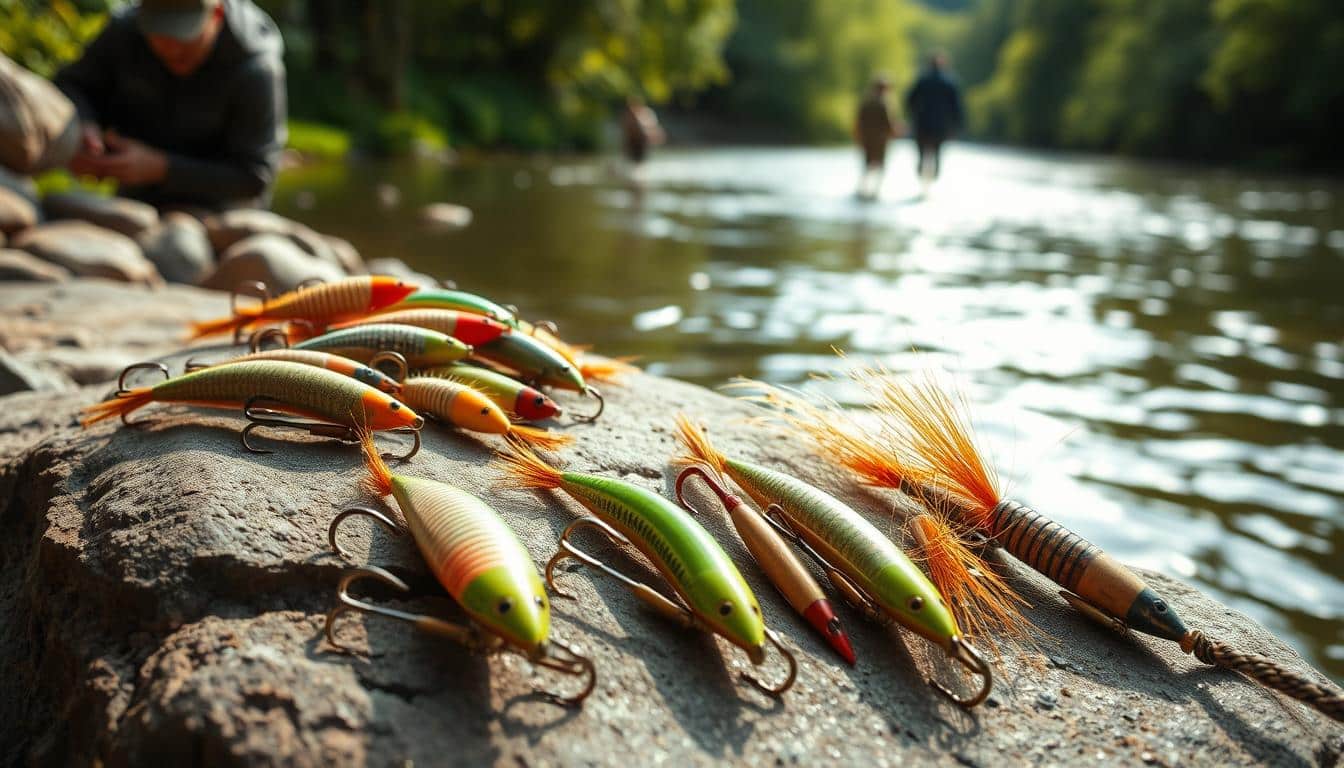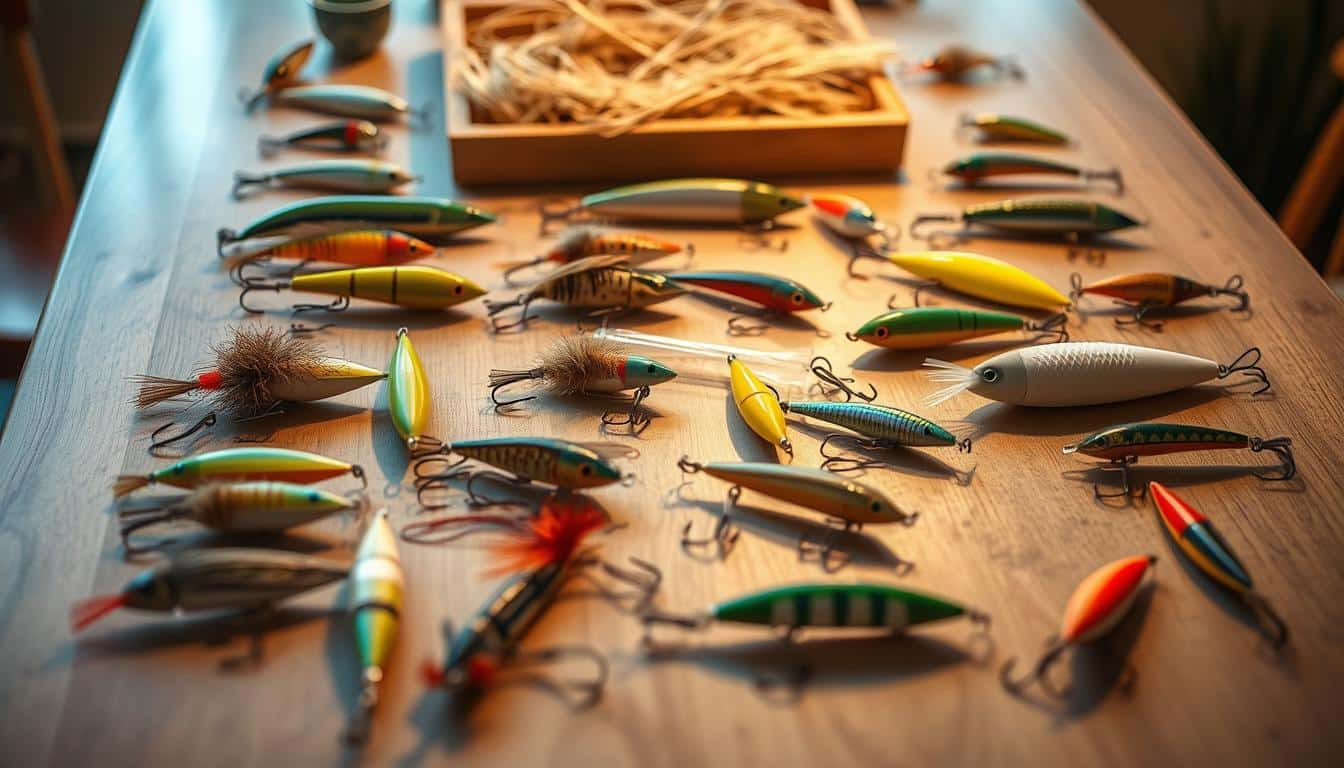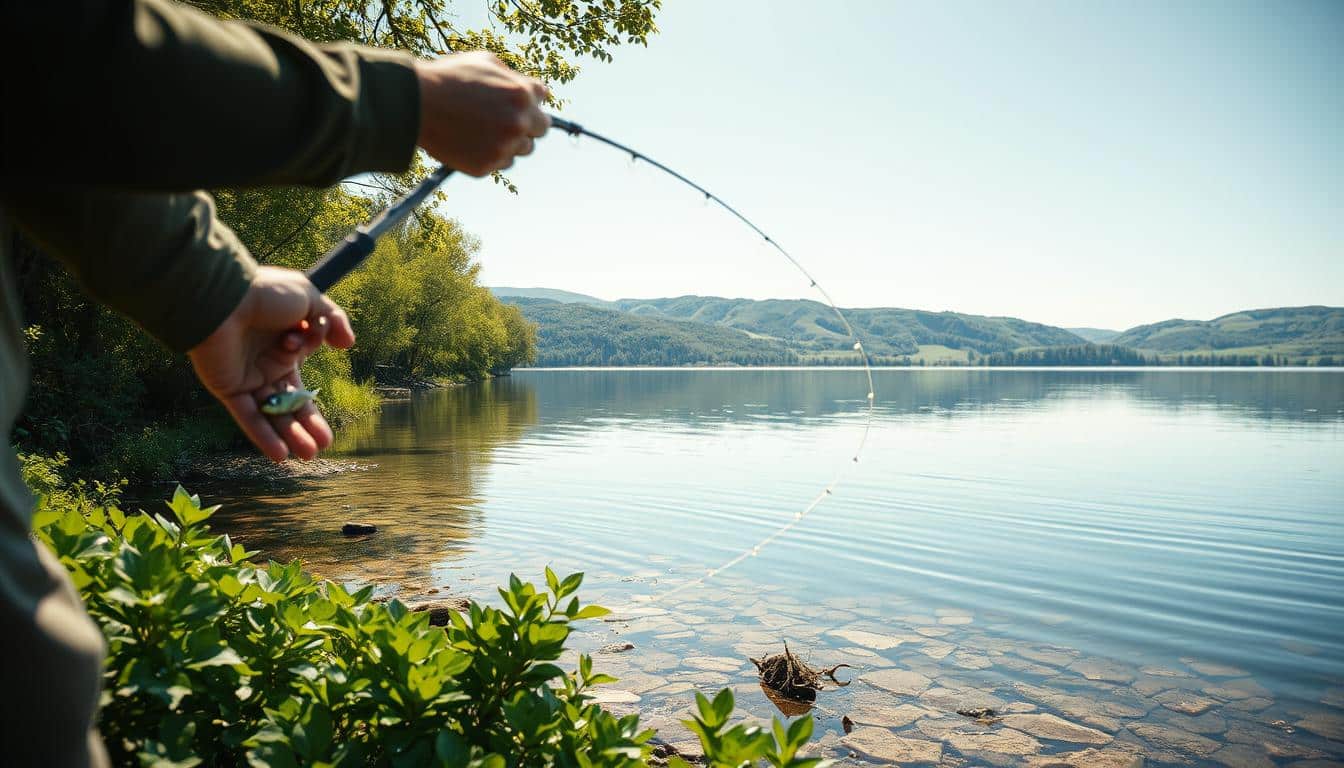How to Fish Sustainably Using Eco-Friendly Lures
This guide helps US anglers pick eco-friendly lures and gear to protect waterways and fish. Start by choosing biodegradable lures and eco-friendly bait that won’t harm our lakes and coasts. Use recycled fishing gear and biodegradable nets to lessen harm to fish homes.
Fish with care: aim to hurt fish less, prevent overfishing, and back conservation efforts. Learn to catch and release fish so it causes them less stress. Use hooks without barbs and wet your hands or use a wet cloth when handling fish. These acts save young fish and keep fish numbers healthy.
Stop ghost fishing by checking your gear often and picking up any lost gear. Use lures made from things like plants or recycled plastics to avoid leaving harmful waste. Choosing sustainable ways to fish helps save wildlife and keeps fishing fun and healthy.
Success comes from smart gear choices and being respectful to the water. Support companies that share where their materials come from and how to keep water clean. By sharing tips and choosing wisely, we help keep fish and their homes safe. This makes sure fishing stays fun for everyone in the future.
FAQ
What is the purpose of using eco-friendly lures and sustainable gear?
A eco-friendly lures and sustainable gear help protect our water ecosystems. They cause less pollution and harm to fish and their homes. This approach supports fish populations and their environments for years to come.
How do I choose an eco-friendly lure?
When picking a lure, go for ones made of biodegradable stuff or non-toxic plastics. Brands like Berkley and Rapala offer safer options. Pick lures that match the local fish to avoid hurting them or losing the lure.Choose designs that work well without causing overfishing. This helps keep fishing enjoyable for everyone.
Are biodegradable lures as effective as traditional ones?
Yes, they are just as good. Biodegradable lures are made to last until they’re not in use anymore. When selected right, these lures can catch fish just as well as the regular ones while being kinder to nature.
What sustainable alternatives exist for lead sinkers and weights?
Instead of lead, use weights made of tin, bismuth, tungsten, or steel. Tungsten is especially good because it’s compact and sensitive. Bismuth and tin are safe for places with water birds. Many companies now make lead-free items.
How can I reduce lost tackle and gear in the water?
Use strong lines and knots to avoid losing your gear. Choose biodegradable jigs or soft plastics. Have a repair kit handy for quick fixes. Always try to get back your gear when it’s safe, and throw away broken items correctly.
What practices help protect fish during catch-and-release?
Using hooks without barbs helps protect the fish. Try to keep them in the water and handle them gently. Use wet hands or a soft net to avoid harming them. Make sure the fish are strong enough to swim away before releasing them.
Which soft plastics are better for the environment?
Opt for soft plastics labeled biodegradable or made with plant materials. Some use corn-based compounds that break down easier than regular plastics. Choose durable designs to reduce loss. If possible, give back used plastics to special recycling programs.
How do sustainable lures and techniques support conservation efforts?
Sustainable fishing gear lessens damage and pollution in water homes, aiding small creatures and the fish that eat them. Using less harmful hooks and gear also keeps birds and fish safer. Following conservation-minded fishing helps keep our waters full of life.
Will eco-friendly tackle cost more?
While some eco-friendly options may be pricier, they tend to last longer, saving money over time. Investing in quality, safe fishing gear benefits both your wallet and the planet.
How can I find reputable eco-friendly tackle and brands?
Do your homework on brands that value transparency. Look for labels like “lead-free” or “biodegradable” and check reviews from trusted groups. Shops like Bass Pro and Cabela’s highlight eco-friendly products. Local stores and state agencies can offer advice too.
Are there regulations about using lead or certain lures?
Many places restrict lead in fishing gear to protect wildlife and habitats. Always check the latest rules where you plan to fish. Stay informed to fish responsibly and keep nature safe.
How should I dispose of old or damaged lures and line?
Cut up old lines and drop them off at recycling bins found at many marinas or shops. Recycle or return lures if you can. For items that can’t be recycled, using the trash is okay. But always aim to reduce waste first.
Can small behavior changes make a big difference?
Yes, every little action helps. Things like using safer hooks, choosing eco-friendly weights, and bringing back lost gear matter. Together, these small steps by thousands of anglers can make our waters healthier for all.
How do I balance effective angling with habitat protection?
Pick the right gear for the fish and place you’re in to avoid harm. Respect fish sizes, catch limits, and closed seasons. Combining careful fishing with eco-friendly gear helps protect nature while still allowing great catches.
Published in November 3, 2025
Content created with the help of Artificial Intelligence.



